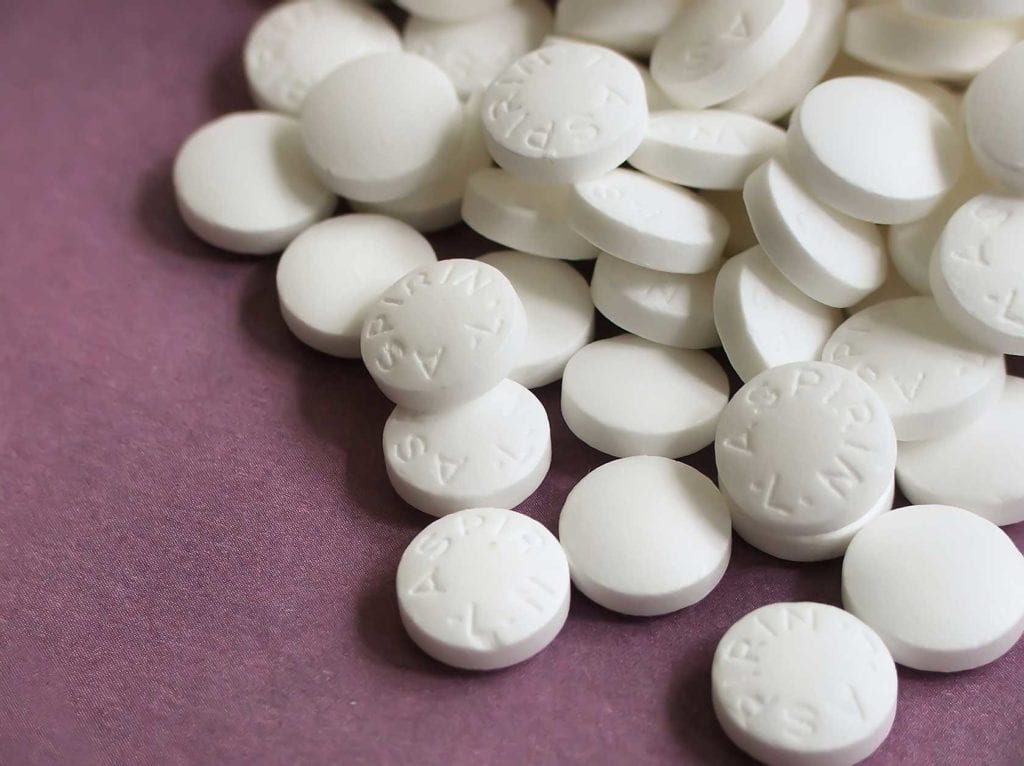
On a busy day in clinic this past winter, Mrs. B came for a follow-up visit. She is a lovely woman in her early 70s who I recently started taking care of in my primary care clinic. During this particular visit, we discussed management strategies for her recently diagnosed diabetes. We worked together to regulate her diet, and identified a medication to stabilize her blood sugar. Thankfully, she had none of the negative health side effects of diabetes. Mrs. B’s only medications included low-dose aspirin to protect her heart, and metformin for her diabetes. As the appointment came to a close, she mentioned watching a news segment about aspirin, which raised concerns about its potential dangers. She questioned whether she should continue to take daily low-dose aspirin, especially if it could be harmful.

Jason A. Sherer, M.D., M.P.H.
Boston Medical Center
Internal Medicine Residency Program
PHOTO: Courtesy of Jason Sherer
Mrs. B was not alone in her concern. Many of my patients have questioned the use of daily low-dose aspirin ever since the negative media coverage. Various research studies discuss the benefits and risks of this regimen in adults. For years, it has been widely used for the prevention of heart disease in those who have previously suffered a heart attack or stroke. In such cases, doctors have historically prescribed aspirin to prevent recurrence of those events – a practice known as “secondary prevention.” However, until recently, it has been unclear whether aspirin provides benefits as a “primary prevention” medication – that is, a medication prescribed to prevent first-time heart attack or stroke.
The studies recently discussed on the news examined the effects of daily low-dose aspirin, and prompted increased discussion regarding the appropriate time to prescribe it to a healthy adult. One study found that daily aspirin for primary prevention in elderly individuals did not reduce their risk of having a heart attack or a stroke, but did increase their risk of bleeding. Another study found that daily low-dose aspirin actually did reduce heart attacks and stroke, but also increased bleeding among the elderly diabetic population. Unfortunately, the information associated with daily aspirin use for primary prevention was not crystal clear. To provide some clarity, the American College of Cardiology (ACC) and American Heart Association (AHA) provided guidelines based on the newest research studies. The groups labeled daily low dose aspirin use in adults over 70 for primary prevention as harmful.
So – with all this information, what should you do? My suggestion is to talk with your primary care physician. For Mrs. B, we discussed the benefits and risks of daily low dose aspirin for her unique circumstance. She is a healthy woman who has never had a heart attack or a stroke, so her aspirin prescription would be for primary prevention. Given her age, overall health and new recommendations by the ACC and the AHA, we jointly determined that she would not continue daily low-dose aspirin because of the potential harm.
Below are several factors to consider regarding the new guidelines:
- Daily low-dose aspirin for secondary prevention is still recommended. Secondary prevention means that you have had a heart attack or stroke in the past. In this case the treatment is to prevent recurrence of those events.
- For primary prevention it is now “weakly recommended” for adults between the ages of 40 and 70 who are at increased risk of heart attack and stroke. This means the benefits only slightly outweigh the risk. If you are fall into this category, it is important to discuss daily aspirin use with your primary care physician.
- High blood pressure, high cholesterol, diabetes, smoking, and old age are some of the factors that can put you at an increased risk of heart attack and stroke.
- Daily low-dose aspirin for primary prevention is NOT recommended for adults age 70 and over.
- For primary prevention it is NOT recommended for adults of any age who have increased risk of bleeding, such as those with anemia, kidney or liver disease, or those who abuse alcohol.
Research is a very important tool to physicians, as it can help shape and guide our practice. Despite the importance of research, it is still necessary that you and your doctors have open and honest discussions regarding benefits and risks for all of your medications. Understanding how new research differs from old standards, and why these differences exist, can help you and your doctor make decisions regarding your health and medications. Ultimately, you want to create a plan you understand, are comfortable with and can follow. Remember, the doctor-patient relationship is a partnership with the premise of “let’s stay healthy, together.”






